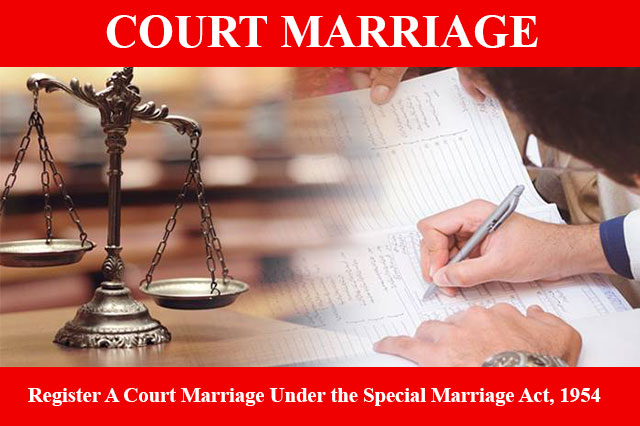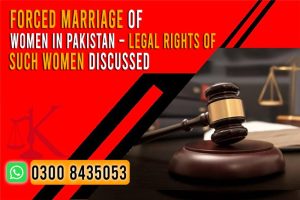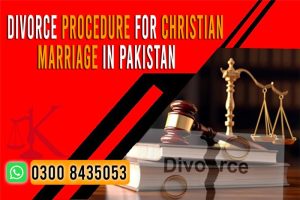
HOW TO SELL PROPERTY OWNED BY MINOR CHILDREN IN PAKISTAN
As you may be aware that sale and purchase of immovable property is done through an agreement binding on parties. In Pakistan

In Pakistan, Marriage is a legal right of every citizen and every person in Pakistan is legally entitled to marry a person of his choice subject to restrictions imposed by law and Shariyat. It is not merely illegal and unlawful to force anyone to marry a person against his/her choice but accordingly to some Islamic Scholars it is also haram. It is for this purpose that we at Khadija Law Associates offer halal way to conduct Court Marriage through legal process. Expert Family Lawyers at Khadija Law Associates have proudly served numerous couples to conduct court marriages. Our expert team warmly welcomes all or any queries with relation Court marriage procedure.
It is a normal misconception in our society that verbal Nikah is sufficient and most of the couples due to ignorance of law make such mistake. Procedure of marriage in Pakistan is governed under the Family Law Ordinance, 1961. Accordingly to Section 5 of the Ordinance, 1961 it is mandatory to register a marriage in Pakistan. It is despite the fact that according to some religious scholar marriage (Nikah) is deemed to have been solemnized when religiously conducted in presence of two (2) male witnesses. However, it is important to understand that conducting Nikah without its registration is not only illegal but for such act law has prescribed 1 year imprisonment for not only both husband and wife but also for Nikahkhawan who fails to register such marriage. It is for this reason that we provide legal services to assist in conducting Court Marriage which both legal and halal.
To conduct court marriage all you need to do is to schedule a visit for our court marriage office in Lahore. In order for us to initiate the process we will you’re your physical presence and you will need to bring your original CNICs together with duplicates. This requirement is for both proposed husband and wife. We arrange the license official in office on the schedule date who conduct Nikah ceremony in presence of witnesses. One the ceremony is conducted, we produce the couple in the Court seeking legal protection against act of harassment or false complaints that may be advanced by any person from their families. Despite the fact that Court marriage seem complicated but our expert team at Khadija Law Associates due to our extensive experience in court marriages handle your court marriage in no time.
So far we only offer Court Marriage Services in our Lahore Office. We have conducted court marriage for several couples who came from all across Pakistan. To take advantage of our services you will have to visit our Lahore office.
Marriage under Family Laws of Pakistan is required to be conducted for those who acquired age of majority. Accordingly to recent amendment in Pakistan Child Marriage Restraint Act, 1929, marriage can be conducted in case of boy if he is aged 18 years or above. On the other hand, Girl must be minimum 16 year or above. Nonetheless, if you do not meet this requirement you can still get married in exception circumstances. It is best that you discuss this matter with our expert team and we will guide you through the process and possible solution.
Normally the CNIC copies of proposed husband and wife are enough. However, if you don’t have CNIC, then you must provide some other official document that show your age. For example, B-Form, Birth Certificate or academic certificate. If any one or both of the proposed husband and wife are Non- Pakistani Nationals, in such case we will require Passport to conduct court marriage. In some case where no such documents as detailed above is available, we can still assist in conducting court marriage. We will require passport size pictures of husband and wife.
Contact us now to schedule a date to conduct your court marriage. We will be happy to assist you.
KHADIJA LAW ASSOCIATES


As you may be aware that sale and purchase of immovable property is done through an agreement binding on parties. In Pakistan

Marriage (nikah) in Islam is a sacred contract between a Muslim man and a woman. It is a legal, social, and spiritual

Introduction Marriage is a deeply significant institution in both religious and cultural contexts. In many societies, including Pakistan, parental involvement in the

DIVORCE UNDER CHRISTIAN LAW IN PAKISTAN – PROCEDURE EXPLAINED BY EXPERT CHRISTIAN DIVORCE LAWYER PAKSITAN At Khadija Law Associates, we recognize the